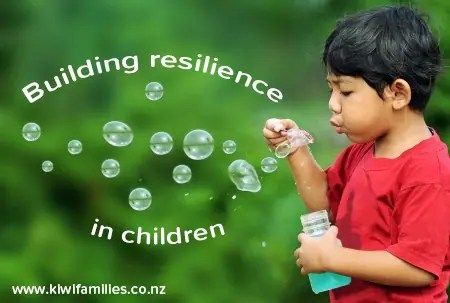As parents, it is our responsibility to equip our children with the skills they need to face life’s challenges head-on. In today’s fast-paced and ever-changing world, building resilience has become an essential aspect of raising mentally strong and healthy children. Resilience helps children overcome setbacks, cope with stress, and develop a positive mindset. In this article, we will provide you with valuable tips on how to foster resilience in your children, promoting their overall mental well-being.
1. Encourage Healthy Emotional Expression
Teaching children to express their emotions in a healthy way is crucial in building resilience. Encourage open and honest communication, and let them know that it is okay to feel sad, angry, or frustrated. Provide a safe space where they can share their feelings without fear of judgment. By expressing their emotions, children learn to process their experiences and develop resilience to face challenging situations.
2. Teach Problem-Solving Skills
Resilient children possess the ability to identify problems and find effective solutions. Teach your children problem-solving skills by presenting them with age-appropriate challenges. Encourage them to brainstorm possible solutions and analyze the outcomes. Celebrate their efforts, whether they succeed or fail, as learning opportunities. Instilling problem-solving skills early on helps children develop a proactive mindset and adaptability.
3. Foster a Supportive Environment
A supportive environment plays a crucial role in building resilience in children. Create a nurturing atmosphere at home where your children feel loved, understood, and valued. Encourage positive relationships with family members, friends, and mentors. Provide opportunities for them to engage in activities that promote teamwork, collaboration, and empathy. Building strong support networks helps children develop resilience by knowing they have a support system to rely on during difficult times.
4. Encourage Healthy Risk-Taking
Resilience is not about avoiding all risks but learning to navigate them safely. Encourage your children to step out of their comfort zones and embrace healthy risks. Whether it’s trying a new sport, participating in a school competition, or pursuing a hobby, learning to take calculated risks fosters resilience. Emphasize that failures are part of the learning process and help them see setbacks as opportunities for growth and improvement.
5. Teach Self-care Practices
Self-care is crucial for mental health and building resilience. Teach your children how to prioritize their well-being by taking care of their physical and emotional needs. Encourage healthy habits such as regular exercise, a balanced diet, and sufficient sleep. Teach them relaxation techniques like deep breathing exercises and mindfulness. By nurturing their own well-being, children develop a strong foundation for resilience and can better manage stress and adversity.
6. Promote a Growth Mindset
Developing a growth mindset is essential for building resilience in children. Teach them that abilities and intelligence can be improved through effort and perseverance. Encourage them to view mistakes as opportunities to learn and grow. Praise their efforts rather than focusing solely on outcomes. By fostering a growth mindset, children develop resilience by seeing challenges as stepping stones towards personal development and success.
Conclusion
Building resilience in children is a vital aspect of nurturing their mental health. By following these tips, parents can support their children in developing the essential skills needed to navigate life’s ups and downs. Encourage healthy emotional expression, teach problem-solving skills, foster a supportive environment, encourage healthy risk-taking, teach self-care practices, and promote a growth mindset. By building resilience, parents set their children on a path towards mental well-being, empowering them to overcome challenges and thrive.




